-
 Bitcoin
Bitcoin $82,817.8607
0.37% -
 Ethereum
Ethereum $1,786.3450
-0.21% -
 Tether USDt
Tether USDt $0.9995
-0.03% -
 XRP
XRP $2.0581
2.05% -
 BNB
BNB $588.2756
-0.68% -
 USDC
USDC $0.9998
0.00% -
 Solana
Solana $115.3483
0.38% -
 Dogecoin
Dogecoin $0.1636
2.68% -
 TRON
TRON $0.2386
2.84% -
 Cardano
Cardano $0.6358
-0.31% -
 UNUS SED LEO
UNUS SED LEO $9.3782
-0.39% -
 Toncoin
Toncoin $3.3861
-6.95% -
 Chainlink
Chainlink $12.5471
-1.04% -
 Stellar
Stellar $0.2562
0.24% -
 Avalanche
Avalanche $17.9826
0.03% -
 Shiba Inu
Shiba Inu $0.0...01210
0.63% -
 Sui
Sui $2.1798
-1.97% -
 Hedera
Hedera $0.1599
1.32% -
 Polkadot
Polkadot $4.0300
3.14% -
 Litecoin
Litecoin $82.4348
0.50% -
 MANTRA
MANTRA $6.2928
-0.26% -
 Bitcoin Cash
Bitcoin Cash $298.4903
-1.02% -
 Bitget Token
Bitget Token $4.4895
-0.77% -
 Dai
Dai $1.0000
0.00% -
 Ethena USDe
Ethena USDe $0.9995
-0.01% -
 Monero
Monero $215.3108
0.00% -
 Hyperliquid
Hyperliquid $11.2063
-1.26% -
 Uniswap
Uniswap $5.7675
-1.15% -
 Pi
Pi $0.5200
-14.33% -
 NEAR Protocol
NEAR Protocol $2.4551
3.63%
What is the difference between "futures trading" and "spot trading" of cryptocurrency?
Spot trading offers immediate crypto ownership at current prices, while futures trading involves contracts for future delivery, often with leverage, increasing both risk and potential reward.
Mar 30, 2025 at 10:07 pm
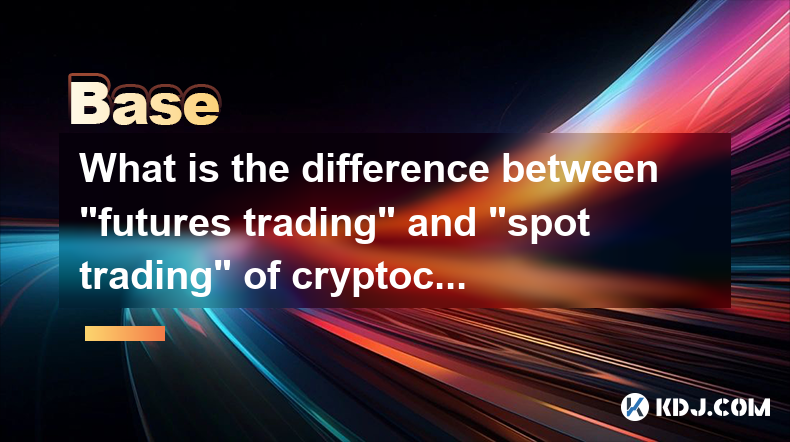
Understanding Cryptocurrency Spot and Futures Trading
Spot trading and futures trading are two distinct ways to participate in the cryptocurrency market. They differ fundamentally in when the asset is delivered and the associated risks and rewards. Spot trading involves the immediate buying and selling of cryptocurrencies at the current market price. Futures trading, conversely, involves agreeing to buy or sell a cryptocurrency at a predetermined price on a future date.
Spot Trading Explained
Spot trading is the most straightforward way to trade cryptocurrencies. When you buy Bitcoin through a spot exchange, you immediately own the Bitcoin. The price you pay is the current market price at the time of the transaction. You can hold it, sell it later at a profit or loss, or use it for other purposes. The transaction is final and immediate. Spot trading is ideal for investors who want direct ownership and are comfortable with the inherent volatility of the cryptocurrency market. Liquidity is generally higher in spot markets compared to futures markets, meaning it's easier to buy or sell quickly.
Risks and Rewards of Spot Trading
The primary risk of spot trading is the potential for significant price fluctuations. The value of your cryptocurrency holdings can increase or decrease dramatically in a short period. This volatility can lead to substantial profits or losses. However, the potential for high returns attracts many investors. The reward is direct ownership and the ability to participate in the growth of the cryptocurrency market. You are directly exposed to the price movements of the underlying asset.
Futures Trading Explained
Futures trading is more complex. It involves entering into a contract to buy or sell a cryptocurrency at a specific price on a future date. This price is agreed upon at the time the contract is created. The contract's value is derived from the underlying cryptocurrency's price. You don't actually own the cryptocurrency until the contract's settlement date. Futures contracts are traded on exchanges and are standardized, meaning they have specific contract sizes and delivery dates. Margins are required to secure the contract, representing a fraction of the total contract value.
Mechanics of Futures Trading
To initiate a futures trade, you need an account with a futures exchange. These exchanges offer various cryptocurrency futures contracts with different expiry dates. You can either go long (agreeing to buy) or short (agreeing to sell) a cryptocurrency at a predetermined price. If the price moves in your favor at the settlement date, you profit. If it moves against you, you incur a loss. The leverage involved in futures trading can magnify both profits and losses.
Leveraged Trading in Futures
Futures trading often involves leverage, which allows you to control a larger position with a smaller amount of capital. Leverage amplifies gains but also significantly increases the risk of losses. If the market moves against your position, you could lose more than your initial investment. Understanding leverage is crucial before engaging in futures trading. Proper risk management is paramount.
Differences Summarized in a Table
| Feature | Spot Trading | Futures Trading |
|---|---|---|
| Timing | Immediate | Future date |
| Ownership | Immediate ownership | Ownership at settlement date |
| Price | Current market price | Predetermined price at contract creation |
| Leverage | Typically none | Often involves leverage |
| Risk | High volatility | High volatility, amplified by leverage |
| Complexity | Relatively simple | More complex |
Spot vs. Futures: Trading Strategies
Spot trading is a suitable strategy for long-term investors who believe in the underlying asset's value. It allows for direct exposure to price appreciation and offers a simpler trading experience. Futures trading, on the other hand, is better suited for short-term traders and speculators who want to profit from price fluctuations without owning the underlying asset. It allows for hedging and sophisticated trading strategies.
Choosing the Right Approach
The choice between spot and futures trading depends on your investment goals, risk tolerance, and trading experience. Beginners are generally advised to start with spot trading to gain a better understanding of the cryptocurrency market before venturing into the complexities of futures trading. Both approaches offer unique opportunities, but understanding their differences is crucial for success.
Understanding Margin Calls
In futures trading, a margin call occurs when the value of your position falls below the required maintenance margin. This means you need to deposit additional funds to cover potential losses. Failure to meet a margin call can result in the liquidation of your position, leading to significant losses. Understanding margin calls and managing risk is essential for futures traders.
Settlement and Delivery
Futures contracts have a specific settlement date. On this date, the contract is settled, either by physical delivery of the cryptocurrency or cash settlement. Cash settlement is more common, where the difference between the contract price and the market price at settlement is paid or received. Physical delivery involves the actual transfer of the cryptocurrency.
Regulatory Considerations
The regulatory landscape for cryptocurrency futures trading is constantly evolving. Different jurisdictions have different rules and regulations regarding cryptocurrency futures trading. It's essential to be aware of the applicable regulations in your region before engaging in any futures trading activity.
Frequently Asked Questions
Q: What is the best way to learn about cryptocurrency futures trading?
A: Start with educational resources like reputable online courses, articles, and books. Practice on a demo account before using real funds.
Q: Are there any fees associated with spot and futures trading?
A: Yes, both spot and futures trading involve fees, including trading fees, network fees (for spot), and funding fees (for futures).
Q: Is futures trading more risky than spot trading?
A: Generally, yes, due to the use of leverage which can amplify both profits and losses. Spot trading carries inherent volatility risk, but without the added leverage risk of futures.
Q: Can I use leverage in spot trading?
A: Some exchanges offer leveraged spot trading, but it carries significant risk.
Q: What is the difference between perpetual and expiry-date futures contracts?
A: Perpetual contracts don't have an expiry date, while expiry-date contracts settle on a specific date. Perpetual contracts often use funding rates to manage price discrepancies with the spot market.
Disclaimer:info@kdj.com
The information provided is not trading advice. kdj.com does not assume any responsibility for any investments made based on the information provided in this article. Cryptocurrencies are highly volatile and it is highly recommended that you invest with caution after thorough research!
If you believe that the content used on this website infringes your copyright, please contact us immediately (info@kdj.com) and we will delete it promptly.
- Dogecoin Price Soared Over 2% Today, Indicating a Renewed Market Interest in the Leading Meme Coin
- 2025-04-04 21:10:12
- Filecoin FIL $2.76 24h volatility: 2.9% Market cap: $1.79 B Vol. 24h: $489.77 M
- 2025-04-04 21:10:12
- The latest Dogecoin price prediction is raising eyebrows
- 2025-04-04 21:05:12
- With meme coins like Pepe and Shiba Inu back in the spotlight, traders are wondering which token could deliver the biggest gains this week
- 2025-04-04 21:05:12
- Market expert Ali Martinez estimates that the price of this dog-themed meme coin has the potential to surge by around 250% to touch the $0.5 level
- 2025-04-04 21:00:12
- Ethereum (ETH) price plunges further as investors limit their risk exposure
- 2025-04-04 21:00:12
Related knowledge
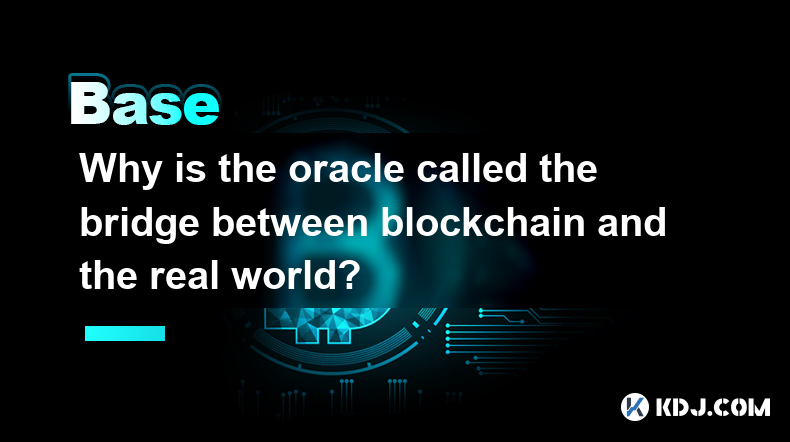
Why is the oracle called the bridge between blockchain and the real world?
Apr 04,2025 at 04:00am
The concept of an oracle in the cryptocurrency and blockchain world is crucial for understanding how these decentralized systems interact with external data. The oracle is often referred to as the bridge between blockchain and the real world because it serves as a vital intermediary that fetches, verifies, and transmits off-chain data to the on-chain en...
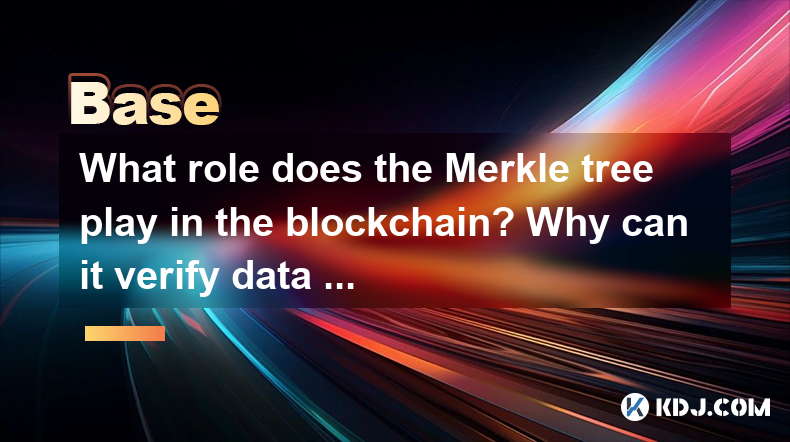
What role does the Merkle tree play in the blockchain? Why can it verify data integrity?
Apr 04,2025 at 01:29pm
The Merkle tree plays a crucial role in the blockchain, primarily due to its ability to efficiently and securely verify data integrity. This article will delve into the structure of a Merkle tree, its implementation in blockchain, and how it ensures the integrity of data. Understanding the Structure of a Merkle TreeA Merkle tree, also known as a hash tr...
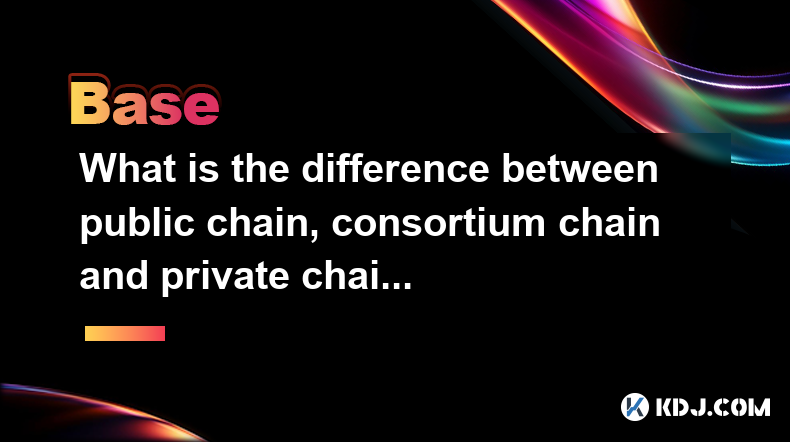
What is the difference between public chain, consortium chain and private chain? What scenarios are suitable for each?
Apr 04,2025 at 09:21pm
In the world of blockchain technology, understanding the differences between public chains, consortium chains, and private chains is crucial for selecting the right type of blockchain for specific applications. Each type of blockchain has its own unique characteristics and use cases, which we will explore in detail. Understanding Public ChainsPublic cha...
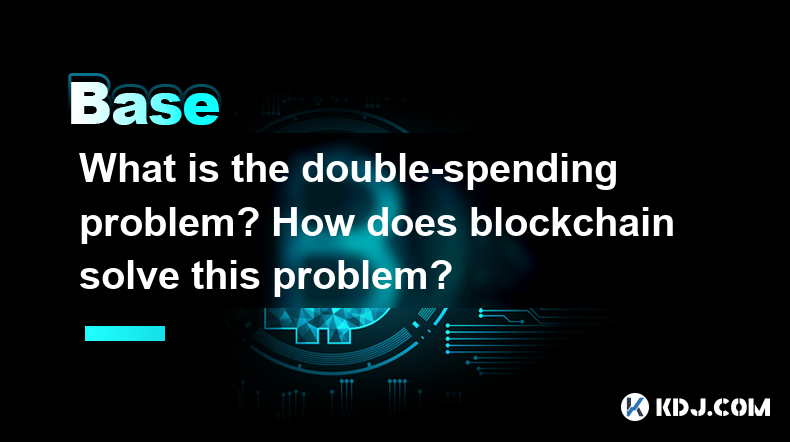
What is the double-spending problem? How does blockchain solve this problem?
Apr 04,2025 at 09:07am
The double-spending problem is a significant challenge in the realm of digital currencies. Double-spending refers to the potential for a digital currency to be spent more than once. This issue arises because digital files, unlike physical cash, can be easily duplicated. If not addressed, double-spending could undermine the integrity and trust in any dig...
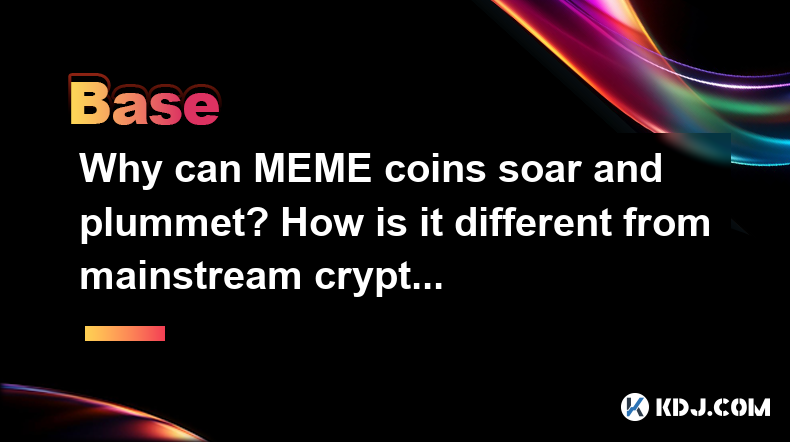
Why can MEME coins soar and plummet? How is it different from mainstream cryptocurrencies?
Apr 04,2025 at 03:07pm
The world of cryptocurrencies is vast and diverse, with a wide range of digital assets that cater to different needs and interests. Among these, MEME coins have carved out a unique niche, often experiencing dramatic price fluctuations that can both soar and plummet in a short period. This phenomenon, while intriguing, differs significantly from the beha...
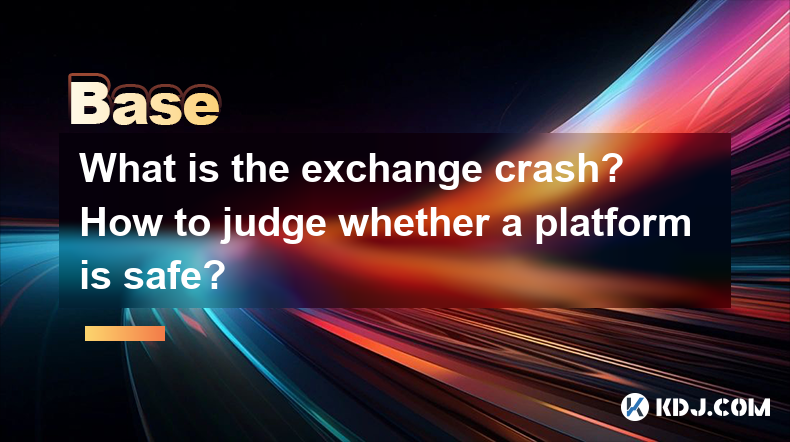
What is the exchange crash? How to judge whether a platform is safe?
Apr 04,2025 at 05:07pm
An exchange crash refers to a sudden and severe disruption in the operations of a cryptocurrency exchange platform, leading to significant financial losses for users and often resulting in the platform's inability to continue functioning. Such crashes can stem from various causes, including cybersecurity breaches, technical failures, or insolvency. Unde...

Why is the oracle called the bridge between blockchain and the real world?
Apr 04,2025 at 04:00am
The concept of an oracle in the cryptocurrency and blockchain world is crucial for understanding how these decentralized systems interact with external data. The oracle is often referred to as the bridge between blockchain and the real world because it serves as a vital intermediary that fetches, verifies, and transmits off-chain data to the on-chain en...

What role does the Merkle tree play in the blockchain? Why can it verify data integrity?
Apr 04,2025 at 01:29pm
The Merkle tree plays a crucial role in the blockchain, primarily due to its ability to efficiently and securely verify data integrity. This article will delve into the structure of a Merkle tree, its implementation in blockchain, and how it ensures the integrity of data. Understanding the Structure of a Merkle TreeA Merkle tree, also known as a hash tr...

What is the difference between public chain, consortium chain and private chain? What scenarios are suitable for each?
Apr 04,2025 at 09:21pm
In the world of blockchain technology, understanding the differences between public chains, consortium chains, and private chains is crucial for selecting the right type of blockchain for specific applications. Each type of blockchain has its own unique characteristics and use cases, which we will explore in detail. Understanding Public ChainsPublic cha...

What is the double-spending problem? How does blockchain solve this problem?
Apr 04,2025 at 09:07am
The double-spending problem is a significant challenge in the realm of digital currencies. Double-spending refers to the potential for a digital currency to be spent more than once. This issue arises because digital files, unlike physical cash, can be easily duplicated. If not addressed, double-spending could undermine the integrity and trust in any dig...

Why can MEME coins soar and plummet? How is it different from mainstream cryptocurrencies?
Apr 04,2025 at 03:07pm
The world of cryptocurrencies is vast and diverse, with a wide range of digital assets that cater to different needs and interests. Among these, MEME coins have carved out a unique niche, often experiencing dramatic price fluctuations that can both soar and plummet in a short period. This phenomenon, while intriguing, differs significantly from the beha...

What is the exchange crash? How to judge whether a platform is safe?
Apr 04,2025 at 05:07pm
An exchange crash refers to a sudden and severe disruption in the operations of a cryptocurrency exchange platform, leading to significant financial losses for users and often resulting in the platform's inability to continue functioning. Such crashes can stem from various causes, including cybersecurity breaches, technical failures, or insolvency. Unde...
See all articles




















































































